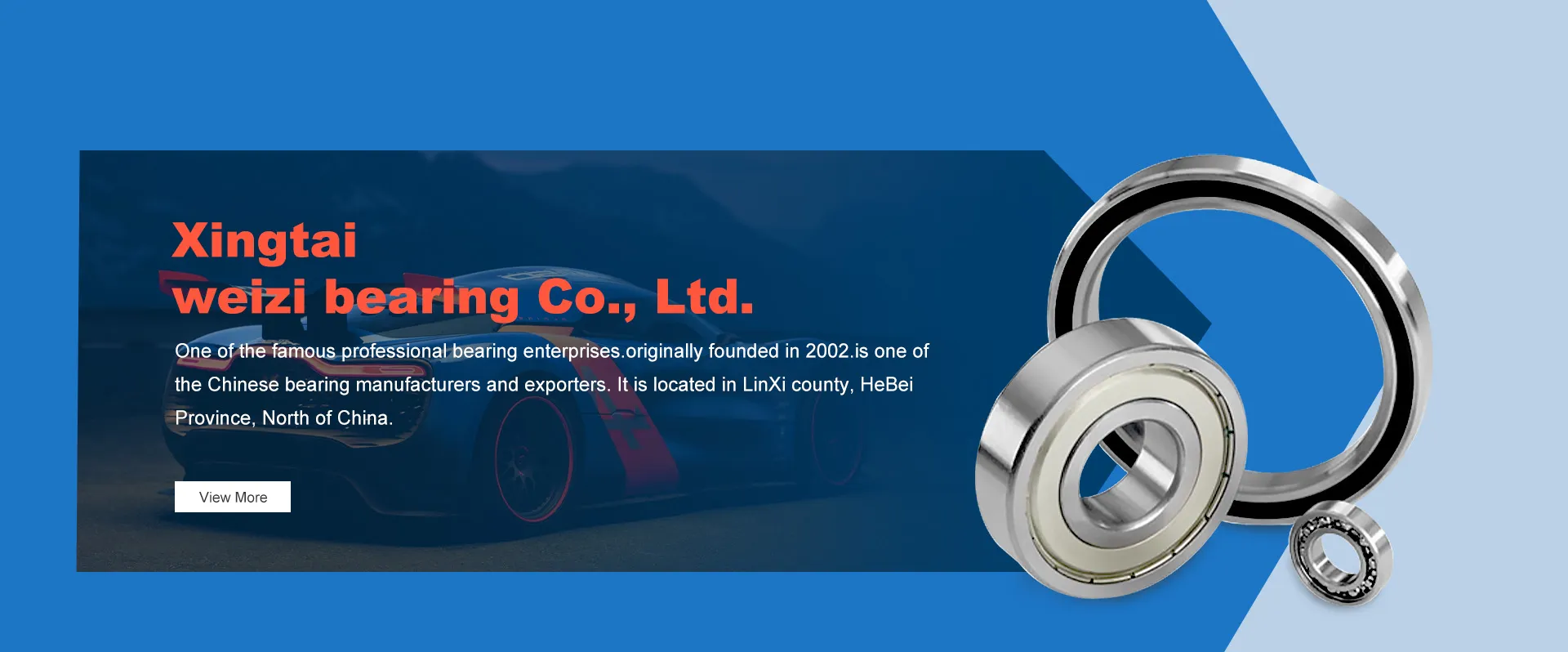
Nov . 23, 2024 21:14 Back to list
precision angular contact bearings
Precision Angular Contact Bearings Key to High-Performance Machinery
Precision angular contact bearings are essential components in modern machinery, playing a crucial role in various applications where high-speed rotation and axial load resistance are required. These specialized bearings are designed to accommodate both radial and axial loads, making them ideal for use in a wide range of industries, from aerospace to automotive.
Understanding Angular Contact Bearings
Angular contact bearings are characterized by their raceway geometry, which allows the balls to make contact with the races at an angle. This design enables them to handle radial loads and axial loads simultaneously. The angle of contact is a critical parameter, as it influences the bearing's load capacity and operating speed. Common contact angles range from 15° to 40°, with a larger angle providing greater axial load capacity but sacrificing some radial load capacity.
Applications and Benefits
In applications that demand high precision and reliability, such as machine tooling and robotics, precision angular contact bearings are indispensable. Their ability to maintain high accuracy under varying loads and speeds makes them the preferred choice for spindle bearings in CNC machines, where optimal performance is paramount. Additionally, these bearings reduce friction, resulting in lower energy consumption and heat generation.
precision angular contact bearings

One of the key benefits of precision angular contact bearings is their versatility. They can be arranged in multiple configurations, including back-to-back, face-to-face, or in a tandem arrangement, to suit specific load requirements. This adaptability allows engineers to optimize designs for enhanced performance, ensuring that machinery operates efficiently even under extreme conditions.
Manufacturing Standards and Quality Control
To ensure the performance and longevity of precision angular contact bearings, manufacturers adhere to rigorous standards and quality control processes. The materials used, typically high-carbon chrome steel or ceramic, must meet specific hardness and resilience characteristics. The manufacturing process involves precise machining and heat treatment to achieve the desired tolerances and surface finishes, essential for reducing wear and increasing the lifespan of the bearings.
Future Trends and Innovations
As industries evolve, so too does the demand for advanced bearing technologies. Innovations in materials, such as the use of hybrid ceramic materials, and advancements in manufacturing techniques are paving the way for bearings that can operate at even higher speeds and temperatures. Furthermore, the integration of smart sensors into bearing systems is set to revolutionize predictive maintenance, allowing for real-time monitoring and reduced downtime.
In conclusion, precision angular contact bearings are a vital component in the machinery that drives today's economy. Their ability to handle complex loading conditions, coupled with advancements in technology, positions them as a cornerstone of mechanical engineering. As industries continue to push the boundaries of performance, these bearings will remain at the forefront, ensuring reliability and efficiency in high-speed applications.
Latest news
-
Spherical Roller Bearings Applications: Heavy Duty, Self-Aligning
NewsAug.30,2025
-
Premium Deep Groove Ball Bearings | High Speed & Reliability
NewsAug.29,2025
-
Durable Scaffolding Clamps - Secure & Reliable Tube Connectors
NewsAug.28,2025
-
Common Failures in Thrust Ball Bearings and Solutions
NewsAug.22,2025
-
How Tapered Roller Bearings Can Take Shock Loads
NewsAug.22,2025
-
Angular Bearings in High-Precision Spindles
NewsAug.22,2025
